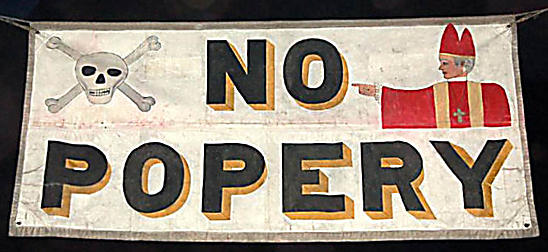

Despite being a nation of immigrants, America has had a long and mostly negative relationship with them.
Going back as early as the 1790's, the immigrants who were coming to the country were largely Jeffersonian
(also known as Democratic-Republicans) and had political leanings that we would consider more liberal
today,
such as believing in rights for refugees, among other things. Those views angered the Federalist party—those against
immigrants—and encouraged the Federalists to take action. They pushed the Alien and Sedition acts
and it passed in 1798. As a result, many Jeffersonian (anti-Federalist) papers were censored and
the residency requirement for immigrants was raised from 5 to 14 years. The acts expired by 1801
with the change in presidency (Alien and Sedition Acts (1798)
), but those anti-immigrant sentiments
still remained in minds of many Americans.
In the 1830's the majority of immigrants entering the country in particular were coming from
poor Catholic countries like Ireland, leading to an American political scene filled with anti-Catholic sentiment.
As Nancy Lusignan Schutlz describes, an increasingly urbanized and industrial society was transforming the American
agricultural economy, and working-class families flocked to cities to earn a living
(Schultz viii). The American
public was distrustful of the Irish Catholic immigrants coming into the country; so much so that in 1831
they burned down a convent in Boston. In a society where religion was
an indication of loyalty, everything that was not Protestant was not trusted; and consequently, anti-Catholic
propaganda was prominent. (See image) 
With rapid social change during the antebellum period in the US, growing tension rose and prejudice
against marginal groups sparked Nativist movements, resulting by the 1850's in the formation of the Know Nothing
Party, known also as the ideological forefathers of the Ku Klux Klan
(Schultz viii).
According to The Know-Nothing Uproar
by Ray Allen Billington, one prominent Puritan from New England
who had a lot to say regarding Catholicism was Samuel F. B. Morse. In addition to inventing the telegraph,
Morse was a staunch Federalist and Calvinist who--in the same year that Awful Disclosures was published--ran
for mayor of New York as a Nativist Party candidate and on an anti-immigrant platform. Earlier, in 1830, Morse went
to Rome to watch a papal procession, and while there a soldier hit his hat off of his head. Whether it was actually
on purpose or on accident Morse declines to say, although it is clear he believed it to be purposeful and, from that
day on, he despised all Catholics. Upon returning home to America he published what happened to him in Rome, and
detailed exactly what he thinks about all the Catholic immigration to America. In his mind, he believes that
every single immigrant coming over is a devout Catholic intent on converting the country. The only solution
to this problem, he says, is to not let them in.

Eventually, around 1835, a name came about for the anti-Catholic party: No-Popery.
They were against all things Catholic and
strongly Nativist, meaning they were also against immigration and believed America should
remain closed to all but those who already lived there. And they were not the only party
formed which were against Catholicism: the Protestant Reformation Society and the New York
Protestant Association, among others, joined forces to try and expel all Catholics from the
country. They accumulated their funds to create powerful Nativist propaganda and encourage people to join
their cause (The Dublin Review, 162-3). One of the most popular forms of Nativist propaganda were
convent narratives, stories of nuns who are trapped
in Catholic convents and eventually escape.